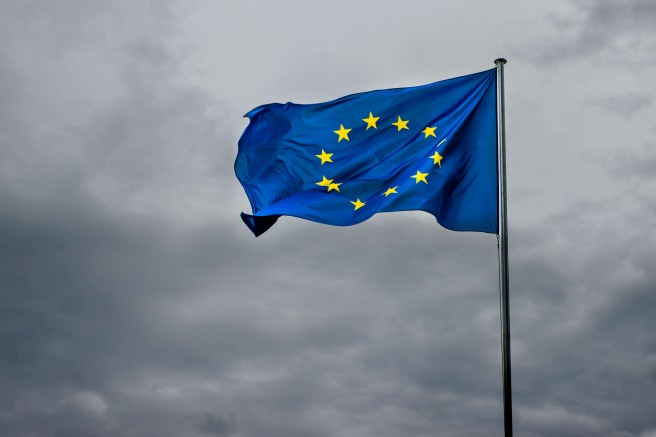The dark side of getting tenure, accepting review requests on holiday, trolling in peer review, and more (Good reads, August 2019)

We are at the end of an exciting month marked by interesting and thought-provoking discussions in academia. If, however, you were unable to keep a tab on the goings-on in scholarly communication and academic publishing world, we have you covered! In this post, we have curated some of the articles that got us thinking and conversing. We hope you enjoy reading!
1. Does academic peer-review encourage trolling? In a thought-provoking article, Ryan Bullock draws an interesting parallel between the troll culture on the internet and academic peer review. Describing his first encounter with academic peer review in the early 2000s – a journal rejection accompanied with harsh reviewer comments – Bullock says that 15 years down the line, not much seems to have changed in the attitude of troll reviewers. He identifies some common traits in troll behavior among peer reviewers: “an overall negative tone; snide, off-point comments based on erroneous assumptions and personal bias; and vague criticisms that lacked connections with those offered by other reviewers or editors.” Bullock points out that academic peer review is intended not only to critique research work but also to facilitate structured academic discourse. However, taking advantage of the blinded peer review system, troll reviewers engage in harsh negative comments that defeat the very purpose of peer review. This reduces accountability, leaving room for poor quality reviews. Urging the scholarly community to rethink the purpose and format of peer review to improve author-reviewer interactions, he expresses his lack of faith in the blind peer review: “The double-blind system provides no assurance to me – and, by extension, the readers – that reviewers are qualified professionals […] The blinded format can encourage boorish and unethical behavior,” he says.
2. Should academic contributors to the media get paid? Peter Wells, head of the Logistics and Operations Management Section, director of the Centre for Automotive Industry Research, and professor of business and sustainability at Cardiff University’s Cardiff Business School, asks this tantalizing question in this piece. Researcher contributions outside of their university or institute have traditionally been gratis. They are seen as a way of giving back both to science and to society, especially to the public that indirectly pays for their wages. However, Wells draws from his personal experience, he expresses his displeasure at the fact that media interaction “does not count as impact or engagement” though “academics being value to the media.” Moreover, academics are often not paid despite the fact that “Every time we go on air – on television or radio – we put our professional reputations on the line,” Wells adds. Contributors like him should be paid he believes because they provide significant insights to discussions. Toward the end of the article, Wells laments this may be only because academic contributors do not have a union to represent them.
3. What do you call yourselves on LinkedIn? As a researcher, it is important for you to put yourself out there and make sure that you have a presence on networking platforms such as LinkedIn. LinkedIn has emerged as an important social networking platform for the community. It presents a great opportunity for researchers to showcase their work, build their own network by connecting with other researchers, and identify potential employers. Do you have a LinkedIn profile? If yes, what do you call yourself on LinkedIn? A PhD scholar? PhD student? PhD candidate? Did you know that researchers in different countries follow different practices for referring to themselves? In this interesting Twitter conversation, several researchers are discussing the various ways by which they identify themselves on LinkedIn. For example, some call themselves “PhD student,” while some prefer to say “PhD candidate.” This thread reveals some interesting cultural differences as well as accepted practices in how people who are working towards their PhD degree identify themselves to the others. Read the tweets in this conversation to learn more about the accepted and appropriate way of referring to yourself.
4. Could getting tenure manifest a dark side in some academics? Getting tenure is one of the greatest achievements and privileges of an academic career. The road to tenure is a long and arduous one, but is not without its benefits – tenured faculty have more freedom to experiment with their research, take more risks, and even initiate changes that could fundamentally redirect the course of their departments and disciplines. Given this scope for new opportunities, one could argue that tenure “brings out the best in faculty.” However, Douglas Dowland, associate professor of English at Ohio Northern University, argues that a significant minority of tenured faculty use their elevated position to undermine and disregard their colleagues’ work, be bitter and difficult to work with, and “make life worse for others.” He goes on to list several reasons that could make this subset of tenured faculty unhappy, which in turn causes them to act out instead of using their power to for positive change. He also argues that it’s almost like they have forgotten the struggles of pre-tenure life and are thus blind to their current privilege. Professor Dowland also suggests ways in which the impact of their “dark” influence can be minimized.
5. Saying no to peer review requests when on a vacation: What would you do if you were on a break and received requests from journal editors to review research papers? Jennifer Rohn, a cell biologist at University College London, discusses in this article the fine balance between personal and professional lives researchers have to maintain. As someone who runs a lab, teaches, and works as an industrial partner, Rohn shares that her workload rarely leaves her time to take a holiday. Moreover, she confesses that even when she manages to take some time off, she works from time to time on urgent tasks. Therefore, while she understands the responsibility researchers have toward their community, she feels the community should also respect their need to unwind. This in turn boosts productivity and motivation to do better work. Rohn says that, “I no longer feel I have a moral obligation to peer review during my time off.” Further, she adds that rather than accepting review requests and “making a half-hearted effort near the deadline, or finishing a review weeks late, I’m just saying no to peer review on this holiday.” “Don’t be afraid to join me,” she urges.
We hope you enjoyed our top picks for this month. Have you come across an interesting conversation that would make for a good read? If you have something you’d like to share, please do so in the comments section below.
Do browse through our previous Scholarly Communications Good Reads collections where we regularly feature more such interesting discussions from the scholarly publishing world.
And if you’d like to stay tuned to important happenings in the journal publishing industry, visit our Industry News section.





